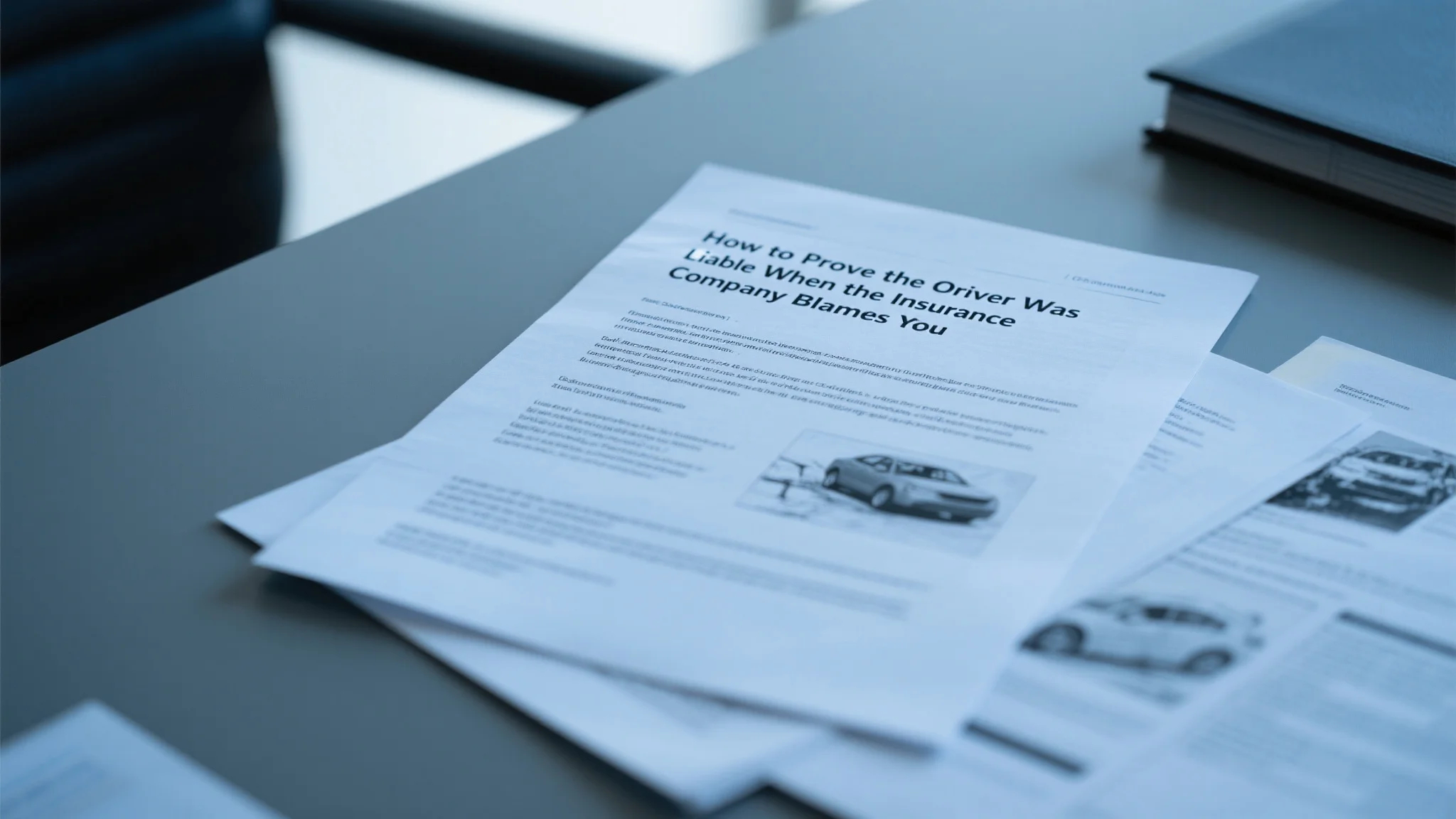Every year, thousands of car accident victims lose their right to challenge wrongful insurance claim denials simply because they miss a critical deadline that most people don’t even know exists. The insurance claim appeal deadline represents one of the most devastating traps in the insurance industry, where companies deliberately obscure time limits and hope that injured victims will let these deadlines pass without taking action. Understanding this 90-day window can mean the difference between receiving fair compensation for your injuries and being left with overwhelming medical bills and financial hardship that could have been avoided with timely action.
The Hidden Time Bomb: Understanding Insurance Appeal Deadlines
Insurance companies have perfected the art of denial letters that appear final and absolute, leading many accident victims to believe they have no recourse when their claims are rejected. However, what these companies don’t prominently advertise is that virtually every denial comes with appeal rights that must be exercised within specific timeframes. The 90-day appeal deadline is not arbitrary; it’s a carefully calculated period that insurance companies know will eliminate a significant percentage of potential appeals simply through the passage of time and the natural tendency of injured people to focus on recovery rather than legal deadlines.
The complexity of insurance appeal deadlines extends far beyond the basic 90-day rule, encompassing multiple layers of requirements that vary by state, insurance company, and type of coverage involved. Some states mandate 30-day deadlines for certain types of appeals, while others allow up to 180 days for specific circumstances. Personal injury protection (PIP) claims often have different deadlines than liability claims, and uninsured motorist coverage appeals may operate under entirely separate timeframes. This maze of varying deadlines creates confusion that insurance companies exploit, knowing that most accident victims lack the legal knowledge to navigate these requirements effectively.
The psychological impact of receiving a denial letter cannot be underestimated in understanding why so many victims miss appeal deadlines. Insurance companies deliberately craft denial letters to sound authoritative and final, using legal language that intimidates accident victims and discourages them from seeking further action. These letters often bury appeal information in small print or technical language that makes the process seem impossibly complex. Meanwhile, accident victims are dealing with physical injuries, emotional trauma, lost wages, and mounting medical bills, making it difficult to focus on legal deadlines and procedural requirements.
The strategic timing of denial letters also plays a crucial role in the appeal deadline trap. Insurance companies often delay their initial claim investigations, taking weeks or months to issue denial letters, during which time accident victims may assume their claims are being processed normally. When the denial finally arrives, victims are caught off guard and may not immediately understand the urgency of responding within the appeal timeframe. This delay tactic is particularly effective because it occurs during the period when accident victims are most vulnerable, dealing with ongoing medical treatment and financial stress.
Documentation requirements for appeals add another layer of complexity that contributes to missed deadlines. Insurance companies typically require specific forms, medical records, witness statements, and other evidence to be submitted within the appeal period. Gathering this documentation can be time-consuming, especially when medical providers are slow to release records or when accident victims need to obtain police reports and other official documents. The bureaucratic burden of assembling a complete appeal package often consumes much of the available time, leaving little margin for error or unexpected delays.
The financial implications of missing appeal deadlines extend far beyond the immediate claim amount, potentially affecting future insurance coverage, credit ratings, and long-term financial stability. When accident victims cannot recover compensation for medical expenses, they may be forced to use credit cards, deplete savings, or even declare bankruptcy to manage their financial obligations. The ripple effects can last for years, affecting the ability to obtain mortgages, business loans, or other forms of credit. Insurance companies understand these broader financial consequences and use the appeal deadline system as a way to minimize their overall liability exposure.
Legal precedents surrounding appeal deadlines have generally favored insurance companies, with courts consistently ruling that missing deadlines forfeits appeal rights regardless of the circumstances that caused the delay. Even compelling reasons such as hospitalization, family emergencies, or reliance on incorrect information from insurance representatives rarely provide grounds for extending appeal deadlines. This strict interpretation of deadline requirements reflects the legal system’s emphasis on procedural compliance over substantive justice, creating an environment where technical violations can override legitimate claims for compensation.

Strategic Response: Protecting Your Rights Within Critical Timeframes
The moment you receive an insurance claim denial, the clock begins ticking on your appeal rights, and every day that passes reduces your options for challenging the decision. Successful navigation of the denied auto claim appeal process requires immediate action and systematic approach that addresses both the substantive issues with the denial and the procedural requirements for maintaining your appeal rights. The first 48 hours after receiving a denial letter are crucial for establishing a foundation that will support your appeal throughout the entire process.
Understanding the specific appeal procedures for your insurance company and state requires careful analysis of your policy documents, state insurance regulations, and the denial letter itself. Each insurance company has its own appeal procedures, forms, and requirements that must be followed precisely to preserve your rights. State insurance departments often have additional requirements or protections that can provide alternative avenues for challenging denials. The denial letter should contain specific information about appeal procedures, but this information is often incomplete or misleading, requiring additional research to ensure full compliance with all applicable requirements.
Documentation preservation becomes critical immediately upon receiving a denial, as insurance companies may later claim that certain evidence was not available during their initial review. Every piece of correspondence with the insurance company should be preserved, including emails, recorded phone calls, and written communications. Medical records, police reports, witness statements, and photographs should be organized and copied to ensure that complete documentation is available for the appeal. The insurance company’s claim file should be requested immediately, as this file often contains evidence that contradicts the stated reasons for denial.
The strategic timing of appeal submissions can significantly impact the likelihood of success, with experienced attorneys often recommending submission well before the deadline to allow time for addressing any procedural deficiencies. Insurance companies frequently reject appeals on technical grounds, claiming that required forms were not completed properly or that necessary documentation was missing. By submitting appeals early in the deadline period, accident victims have time to correct any deficiencies and resubmit their appeals before the deadline expires. This approach also demonstrates good faith compliance with appeal procedures, which can be important if the case eventually proceeds to litigation.
Professional legal representation becomes increasingly important as appeal deadlines approach, particularly given the complexity of insurance law and the high stakes involved in these cases. Attorneys who specialize in insurance claim appeals understand the specific requirements for different types of appeals and can ensure that all procedural requirements are met while building the strongest possible case for overturning the denial. The cost of legal representation is often justified by the increased likelihood of success and the potential for recovering attorney fees in cases where insurance companies have acted in bad faith.
Alternative dispute resolution options may be available even when traditional appeal deadlines have passed, providing additional opportunities for resolving claim disputes outside of the formal court system. Many states have insurance mediation programs that operate independently of insurance company appeal procedures, with different deadlines and requirements. Arbitration clauses in insurance policies may provide another avenue for challenging denials, although these procedures often favor insurance companies and may limit the types of damages that can be recovered. Understanding all available options requires comprehensive analysis of policy terms, state regulations, and applicable legal precedents.
The coordination of multiple appeal strategies can maximize the chances of success while preserving all available options for challenging wrongful denials. Simultaneous appeals to insurance companies, state insurance departments, and alternative dispute resolution forums can create pressure on insurance companies to reconsider their denial decisions. However, this multi-pronged approach requires careful coordination to ensure that statements made in one forum do not undermine positions taken in another. Professional legal guidance is essential for managing these complex strategic considerations effectively.
Emergency procedures may be available in cases where appeal deadlines create immediate hardship or where insurance companies have failed to provide adequate notice of appeal rights. Some states have provisions for extending appeal deadlines in cases of excusable neglect or where insurance companies have provided misleading information about appeal procedures. Emergency injunctive relief may be available to prevent insurance companies from closing claim files while appeal procedures are pending. These emergency options are typically available only in extreme circumstances and require immediate legal action to preserve their effectiveness.
Maximizing Success: Advanced Strategies for Deadline-Driven Appeals
The most successful insurance claim appeals combine meticulous attention to procedural requirements with sophisticated legal strategies that address the underlying reasons for claim denials. Understanding how to leverage the 90 day insurance appeal timeframe requires comprehensive knowledge of insurance law, claim investigation procedures, and the specific tactics that insurance companies use to justify wrongful denials. Advanced appeal strategies go beyond simply challenging the insurance company’s stated reasons for denial, instead building comprehensive cases that demonstrate patterns of bad faith claim handling and procedural violations that may entitle accident victims to additional damages beyond their original claim amounts.
Forensic analysis of insurance company claim files often reveals evidence of bias, inadequate investigation, or deliberate misrepresentation of facts that can form the foundation for successful appeals. Insurance companies are required to maintain detailed records of their claim investigations, including adjuster notes, expert reports, witness statements, and internal communications about claim decisions. These files frequently contain evidence that contradicts the insurance company’s stated reasons for denial, showing that adjusters ignored favorable evidence or relied on biased expert opinions to justify predetermined denial decisions. Obtaining and analyzing these files requires specific legal procedures and expertise in insurance claim investigation practices.
Expert witness testimony can provide crucial support for appeals by demonstrating that insurance company investigations failed to meet industry standards or that denial decisions were based on flawed analysis of available evidence. Medical experts can challenge insurance company medical reviews that minimize injury severity or question the relationship between accidents and claimed injuries. Accident reconstruction experts can contradict insurance company liability determinations by providing alternative analyses of how accidents occurred. Economic experts can demonstrate that insurance company damage calculations undervalue legitimate losses or fail to account for all compensable damages.
The integration of state insurance regulations into appeal strategies can provide additional grounds for challenging denials and may trigger regulatory investigations that pressure insurance companies to reconsider their decisions. State insurance departments have specific requirements for claim investigation procedures, communication with claimants, and documentation of denial decisions. Insurance companies that fail to comply with these regulatory requirements may face fines, sanctions, or other regulatory action that can be leveraged in appeal proceedings. Understanding the specific regulatory framework in each state requires specialized knowledge of insurance law and regulatory procedures.
Bad faith insurance litigation strategies can transform routine claim appeals into comprehensive legal actions that seek punitive damages and attorney fees in addition to the original claim amount. Insurance companies that engage in systematic patterns of wrongful claim denials may be liable for bad faith damages that far exceed the value of individual claims. These cases require extensive discovery procedures to uncover evidence of company-wide policies that encourage wrongful denials or that provide financial incentives for adjusters to minimize claim payouts. The threat of bad faith litigation often motivates insurance companies to settle appeals on favorable terms rather than risk exposure to significant punitive damages.
Class action procedures may be available when insurance companies engage in systematic patterns of wrongful denials that affect multiple claimants with similar circumstances. These cases can provide leverage for individual appeals by demonstrating that denial decisions are part of broader company policies rather than legitimate responses to specific claim circumstances. Class action litigation also provides access to extensive discovery procedures that can uncover internal company documents and communications that would not be available in individual appeal proceedings. However, class action procedures are complex and require specialized legal expertise to navigate effectively.
Settlement negotiation strategies during the appeal process can often achieve favorable results without the need for protracted litigation, particularly when insurance companies face exposure to bad faith damages or regulatory sanctions. Experienced attorneys understand how to leverage appeal deadlines and procedural requirements to create negotiating pressure that motivates insurance companies to offer reasonable settlements. The timing of settlement discussions is crucial, as insurance companies may be more willing to negotiate as appeal deadlines approach and the risk of missing procedural requirements increases. However, settlement negotiations must be carefully managed to ensure that appeal rights are preserved if negotiations fail to produce acceptable results.
Technology and data analysis tools are increasingly important in modern insurance claim appeals, providing sophisticated methods for analyzing claim files, identifying patterns of wrongful denials, and presenting evidence in compelling formats. Digital forensics can recover deleted emails and electronic communications that reveal insurance company decision-making processes. Statistical analysis can demonstrate that denial rates for specific types of claims exceed industry norms or that particular adjusters have unusually high denial rates. Presentation technology can help communicate complex technical evidence to arbitrators, mediators, or judges in ways that clearly demonstrate the weaknesses in insurance company positions.
Long-term strategic planning for insurance claim appeals must account for the possibility that initial appeals may be unsuccessful and that additional legal action may be necessary to achieve fair compensation. Understanding the relationship between appeal procedures and subsequent litigation is crucial for preserving all available legal options while maximizing the chances of success at each stage of the process. Some appeal strategies may strengthen positions for future litigation, while others may create procedural obstacles that limit future options. Professional legal guidance is essential for developing comprehensive strategies that account for all potential outcomes and preserve maximum flexibility for future legal action.
The psychological and emotional aspects of deadline-driven appeals cannot be ignored in developing effective strategies for challenging wrongful claim denials. Accident victims who are dealing with physical injuries, financial stress, and emotional trauma may struggle to maintain focus on complex legal procedures and deadlines. Successful appeal strategies must account for these human factors by providing clear communication, realistic timelines, and emotional support throughout the process. Understanding the personal impact of insurance claim denials helps attorneys develop strategies that not only address legal requirements but also provide the support and guidance that accident victims need to navigate these challenging situations successfully.



